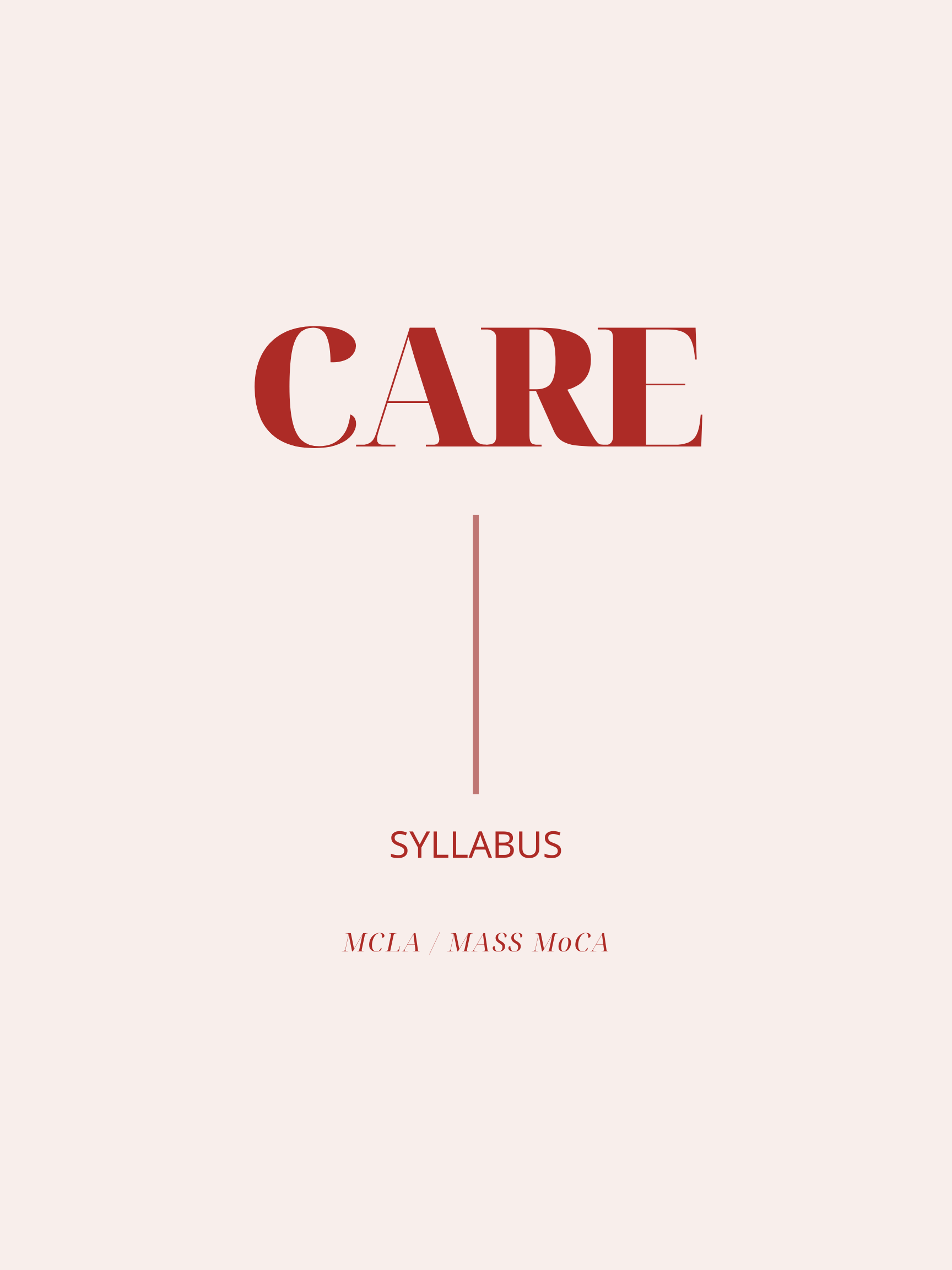New MCLA/MASS MoCA collaboration explores the meaning of care

What does “care” mean to you?
CARE SYLLABUS, a new justice-oriented public education and community resource, aims to explore the meaning and discourse around the concept of care through a multi-modal website with curated modules, original text, media, recordings, and virtual live events.
A project of THE MIND’S EYE, a research and praxis initiative of MCLA, in collaboration with MASS MoCA, CARE SYLLABUS is aiming to reach a wide audience, from local educators and academics to museum patrons, community members, and others interested in the concept of care.
“Our hope is that the project supports and fosters community both within and beyond the Berkshires,” said MCLA Assistant Professor of English Victoria Papa, who is co-directing the project. “The digital nature of the project allows for reach.”
The project was born out of a previous academic symposium also developed and presented by THE MIND’S EYE and MASS MoCA. Originally planned as this year’s iteration of an academic symposium, the pandemic forced the project’s creators to think strategically about how to explore the concept of care and present the content.
“We find ourselves at a time when things feel out of control and confusing—not just because of COVID or the election—but in terms of academia and in museums, it seems like so much is being called into question around narratives, elitism, and structure,” said MASS MoCA Director of Education Laura Dickstein Thompson, who also teaches in MCLA’s arts management program. She co-directs this project with Papa and Levi Prombaum, who is working on CARE SYLLABUS through a fellowship grant from the American Council of Learned Societies. “We look at this as an opportunity to make both higher education and museums much more accessible by opening up what was once an academic symposium to a larger, broader audience.”
The first module, “Reconnecting Objects with Their Homes,” curated by artist Wendy Red Star, will be made public in December at https://www.caresyllabus.org. Red Star’s work is currently on view in Kidspace at MASS MoCA. Her work with CARE SYLLABUS analyzes and explores how we might repair the damage done when indigenous records and objects are displaced from their peoples (for example, to be displayed, collected, preserved, and studied in a museum context). “In her module, Red Star offers expansive ways to think about family, history, and community. Her insights about care and critique are incredibly timely,” Prombaum said. Future modules will explore the concept of care and the arts related to disability justice, Black resistance, population health and other topics.
A public education program will accompany each module, organized by the CARE SYLLABUS team. These programs will feature keynote events with guest curators, resources and sessions for local educators, and platforms for the stories of community activists and organizations. The CARE SYLLABUS website will maintain a blog open to submissions from partners and community members, chronicling reflections on art and care.
The CARE SYLLABUS team is an advisory committee made up of professors, curators, staff members, and academics representing MCLA, the MCLA Berkshire Cultural Research Center, MASS MoCA, The Clark Art Institute, Williams College, and Williams College Museum of Art.
Future modules and other content will offer throughlines into upcoming exhibitions and performing arts programming at partner institutions, unpacking concepts around the exhibits and the venues themselves, including questions of visibility and representation.
Dickstein Thompson said she is looking forward to bringing collaborative virtual programming to MASS MoCA through the lens of CARE SYLLABUS. “I am excited to be able to broaden the reach of our exhibitions and performances, and to engage our staff and community in what it means to care in these days of turmoil. And I am also very much looking forward to solidifying our partnership with MCLA through the CARE SYLLABUS.”
Papa said that she sees institutions working together to present CARE SYLLABUS and examine their own practices in the process as an exciting development. “CARE SYLLABUS is an experiment in creating a commons of care,” Papa said, “It is a space for radical communal imagination.”
